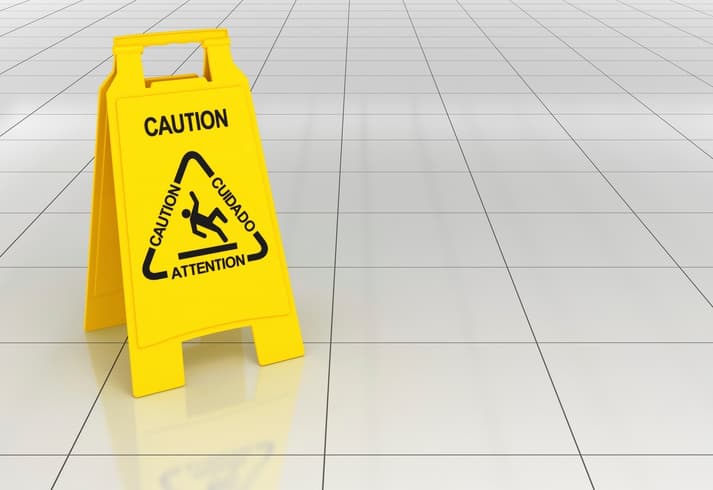Who is responsible in a "Slip-and-Fall?"

From wet floors to icy sidewalks, there are plenty of places where it’s easy to slip and fall. When those falls result in injuries, who is to blame? It depends.
Slip-and-fall cases are part of premises liability law. Premises liability means that the owner is accountable if an injury happens on his or her property. There are many different types of injuries that could happen, from dog bites to injuries from to a swimming pool accident, or even inadequate maintenance. Slips and falls are one of the most common types of accidents in premises liability, according to HG.org.
In determining who’s at fault, a slip-and-fall attorney examines several aspects, most importantly whether a property owner made a reasonable effort to keep their property safe. If the owner did not, and that negligence caused a slip-and-fall injury, the owner is likely responsible.
There are, of course, other factors at play, such as if whether the injured person was an invited guest/customer, or if they were uninvited or trespassing on the property without permission. Here, the owner likely would not be at fault. In addition, visitors to any property are expected to exercise reasonable care: someone who slips and falls because he or she is under the influence may not have a case.
In some cases, both the injured party and the property owner may be found at fault. This is called “comparative fault.” In this instance, if the injured person is found 50 percent liable for the injury, then any damage award could be reduced by that amount.
If you slip and fall at work, even if you receive Workers’ Compensation, there may be an opportunity to recover damages. That’s why it’s important to consult an attorney who has successfully handled premises liability cases in Philadelphia.
You are welcome to contact us at any time with questions related to this post, or if you have a specific legal situation you would like to discuss.

